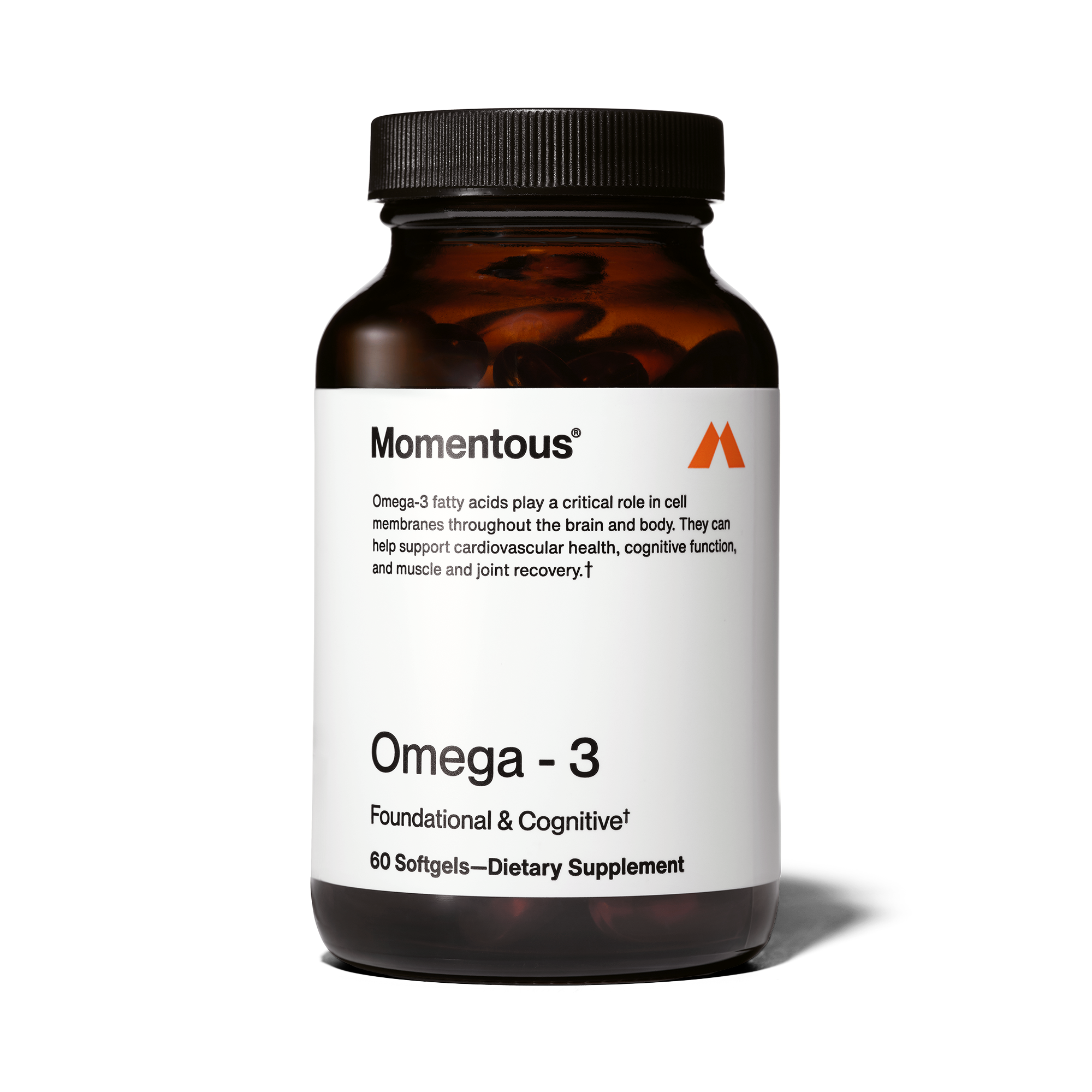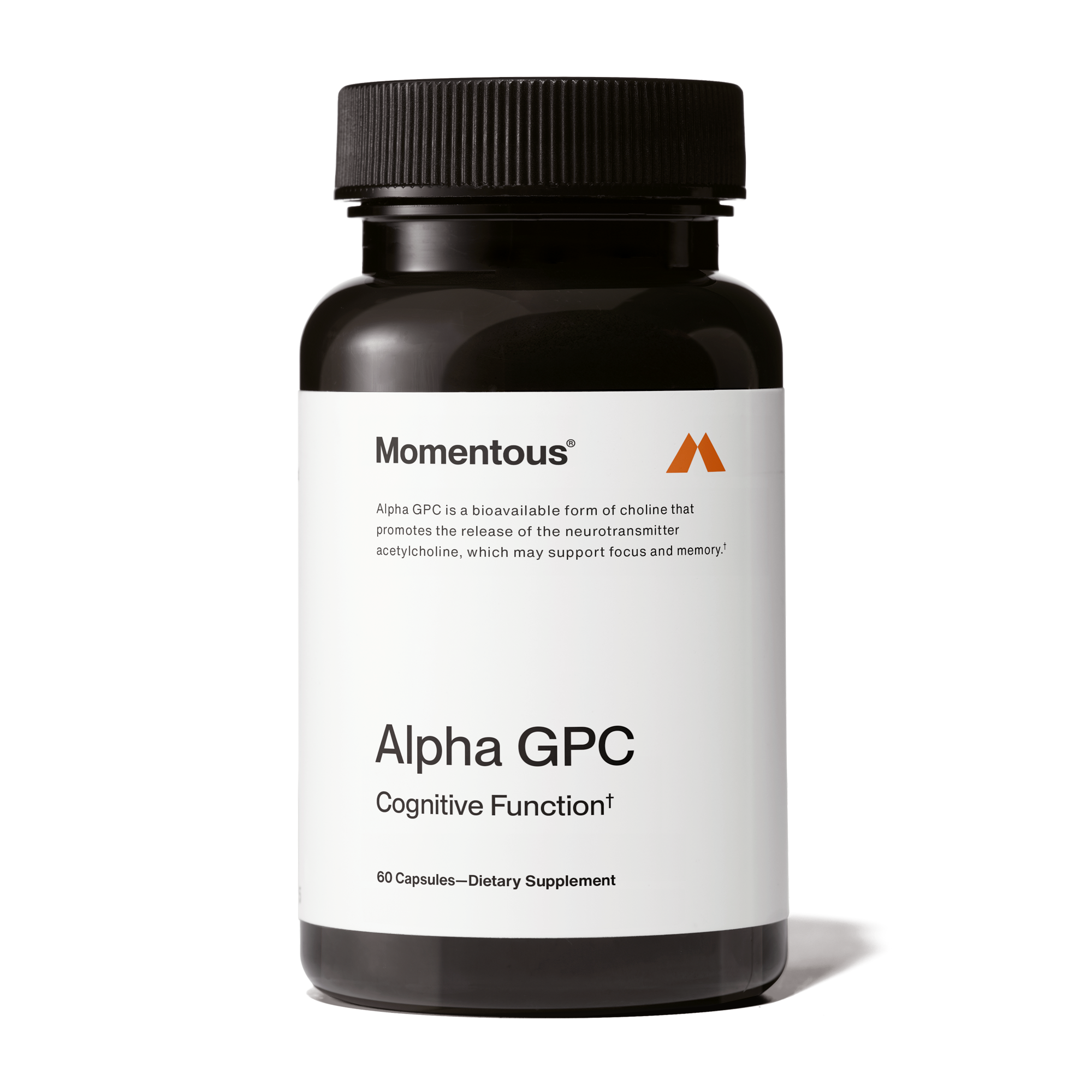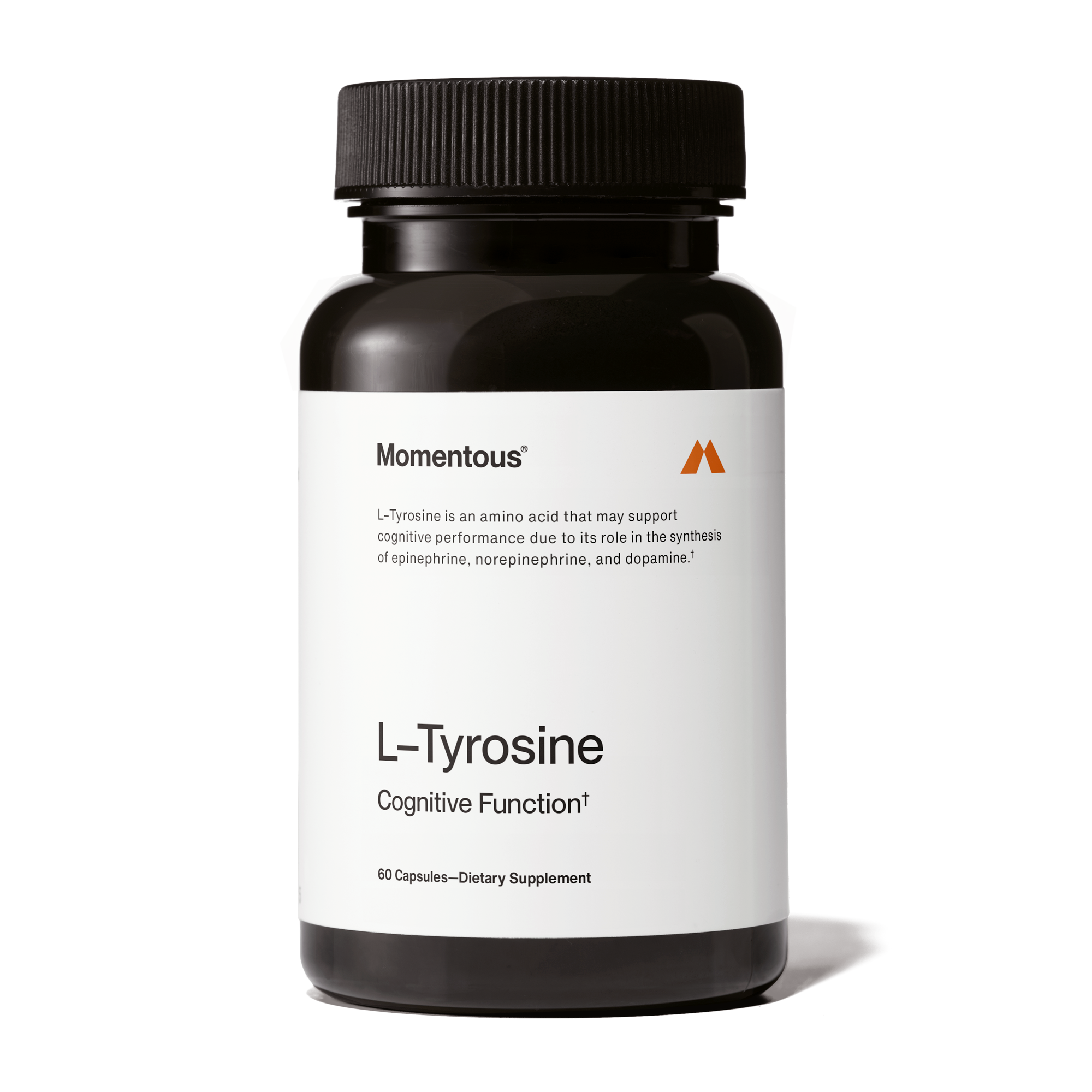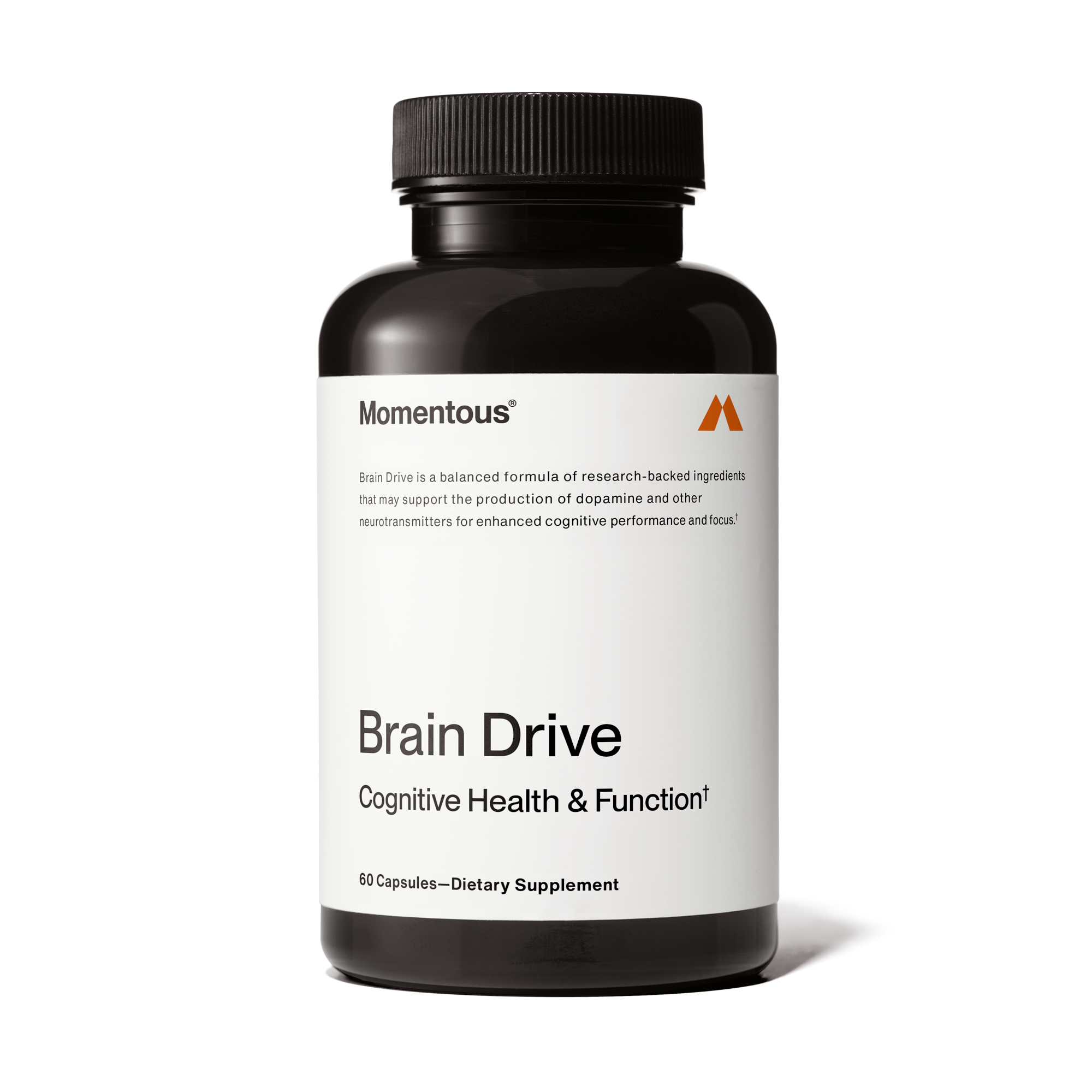Potent, clean Omega-3 for cardiovascular + brain health
Choline source that supports memory, focus + brain health
Supports mental performance under stress and fatigue
Daily nootropic blend for clarity, productivity + cognitive function
Tyrosine, Omega-3, and Alpha GPC to support focus, memory + mental energy
Navigating the marathon of life requires mental agility. You need to stay in your lane, maintain a steady pace, and keep your eyes fixed on the finish line. Yet, focus, that essential fuel for our mental stamina, often proves to be as elusive as maintaining the perfect stride in a long-distance run. What if we could harness that focus, finding our rhythm, and glide effortlessly through the tasks at hand, transforming our work into a source of growth?
The idea that focus is integral to personal and professional growth has been widely recognized. Renowned authors have even likened the act of focused work to an athlete in their prime. Mihaly Csikszentmihalyi's seminal work "Flow" and Cal Newport's insightful "Deep Work" both emphasize the power of intensely immersive, focused work. They propose that true satisfaction and productivity are akin to an athlete in their "zone," where concentration is sustained, and distractions are minimized (1, 2). With that in mind, here are some tips for how to find your focus and improve your mental clarity.
What is Focus?
Focus, what researchers term as 'sustained attention,' is akin to a secret superpower. It's our capacity to keep our mental spotlight on a task or idea for an extended period, efficiently sidelining distractions. This powerful ability allows us to fully utilize our cognitive resources.
The magic behind this phenomenon takes place in our brain's complex network, particularly the prefrontal cortex, which acts as the control center for directing our attention (3). It's fascinating how our brain orchestrates sustained attention. The prefrontal cortex constantly communicates with other brain regions to monitor and manage our focus.
For example, the parietal cortex, known for processing sensory information, works with the prefrontal cortex to keep our attention tuned to the task at hand. At the same time, the anterior cingulate cortex helps us detect when our attention wanders and coordinates the effort to bring it back on track (4). Through this intricate neural balance, we maintain focus and, ideally, navigate our daily tasks gracefully and efficiently.
The Tangible Benefits of Improved Sustained Attention
Cultivating your sustained attention can have transformative effects, touching various aspects of your life:
Increased Productivity: A stronger focus or sustained attention enhances both the speed and quality of your task completion. You're not just getting things done but excelling at them.
Better Decision-Making: Sustained attention lets you absorb and process all necessary information and make well-informed and balanced daily decisions.
Reduced Stress: Focusing on the present moment prevents your mind from straying into worries of the past or future, reducing stress and fostering a sense of calm.
Strategies for Improving Focus
Just like any skill, your ability to maintain focus can be improved. Think of it as a mental muscle - with the right training and nutrition, it can grow stronger over time, enhancing your mental agility. Here are some effective strategies encompassing behavior, nutrition, and supplements to help you on this journey.
Behavioral Interventions
The correct practices can hone our focus and control over our attention, making these behavioral interventions critical elements of any mental fitness routine:
Meditation: Regular meditation practice can enhance our ability to manage distractions and improve our focus over time (5).
Mindfulness: Mindfulness encourages us to stay present and focused on the task at hand, improving our attention span (6).
Time Management Techniques: Strategies like the Pomodoro Technique or time blocking can facilitate sustained attention by structuring work and rest periods.
Less Time on Your Phone: Digital distractions, particularly from smartphones, can significantly disrupt our focus. Setting specific times for device use, and turning off unnecessary notifications, can all help reduce these distractions.
Nutritional Interventions
Nutrition is the fuel that powers our brain's performance. A balanced diet can contribute significantly to our cognitive health, making these nutritional interventions essential:
Brain-Boosting Foods: Consuming foods rich in Omega-3 fatty acids, antioxidants, and B vitamins, such as fatty fish, berries, and leafy greens, can support brain health and focus.
Hydration: Even mild dehydration can impair cognitive functions, including focus. It's important to stay adequately hydrated throughout the day.
Avoid Unhealthy Foods: Processed foods and high sugar intake can lead to energy crashes, impairing focus and productivity.
Supplement Interventions
We understand the critical role that focus plays in human performance. That's why we've designed our supplements to give the brain the necessary nutrients to function optimally. Here are a few supplements in our extensive cognitive performance collection that can help you optimize your brain health and performance:
Omega-3 Fatty Acids: These essential fats are crucial for brain health, supporting memory, mental performance, and behavioral function (7). They're often found in fish, but supplements can be a good option for those not getting enough from their diet.
Alpha-GPC: Alpha-GPC (Alpha-glycerophosphocholine) is a chemical that is turned into choline and glycerol-1-phosphate by the body. Choline is a chemical that the body uses to make a neurotransmitter called acetylcholine which is vital for memory, attention, and skeletal muscle contraction.
Tyrosine: Tyrosine is an amino acid that can increase the production of dopamine and related neurotransmitters which positively impact energy, motivation, and mood.
Brain Drive: Designed to support brain health and cognitive function, Brain Drive has a unique formula that combines potent science-backed ingredients known to boost focus, making it an excellent addition to your cognitive wellness routine.
Like a marathon runner crossing the finish line, mastering sustained attention is attainable, given the right training and tools. This journey will lead you toward heightened productivity, informed decision-making, and a life enriched by the clarity that comes from deep focus. So, get set and take the first step towards mastering your mental marathon today.
----
(1) Csikszentmihalyi, M. (2016). Flow and the foundations of positive psychology: The collected works of Mihaly Csikszentmihalyi. Springer.
(2) Newport, C. (2016). Deep work: Rules for focused success in a distracted world. Grand Central Publishing.
(3) Rossi, A. F., Pessoa, L., Desimone, R., & Ungerleider, L. G. (2009). The prefrontal cortex and the executive control of attention. Experimental Brain Research, 192(3), 489–497.
(4) Miller, E. K., & Cohen, J. D. (2001). An integrative theory of prefrontal cortex function. Annual Review of Neuroscience, 24(1), 167–202.
(5) Moore, A., Gruber, T., Derose, J., & Malinowski, P. (2012). Regular, brief mindfulness meditation practice improves electrophysiological markers of attentional control. Frontiers in Human Neuroscience, 6, 18.
(6) Mrazek, M. D., Franklin, M. S., Phillips, D. T., Baird, B., & Schooler, J. W. (2013). Mindfulness training improves working memory capacity and GRE performance while reducing mind wandering. Psychological Science, 24(5), 776–781.
(7) Dighriri, I. M., Alsubaie, A. M., Hakami, F. M., Hamithi, D. M., Alshekh, M. M., Khobrani, F. A., Dalak, F. E., Hakami, A. A., Alsueaadi, E. H., Alsaawi, L. S., Alshammari, S. F., Alqahtani, A. S., Alawi, I. A., Aljuaid, A. A., & Tawhari, M. Q. (2022). Effects of omega-3 polyunsaturated fatty acids on brain functions: A systematic review. Cureus, 14(10), e30091.


















